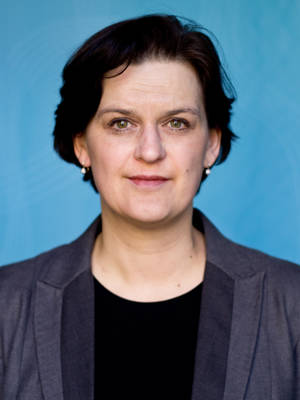Over the past decade, the Missing Peace Initiative has taken stock of current scholarship, policies and programming on conflict-related sexual violence. With a vibrant group of partners and members, the Initiative explores and communicates research findings on the causes, scope and patterns of sexual violence to inform policymakers, improve research and documentation capacity and to advance policies and practice.
Launched in 2012, the Initiative is a partnership between leading experts (see ‘Contributors’, below) that brings together policymakers, practitioners, scholars and survivors who are working on the issue of sexual violence in conflict and post-conflict settings. Together, these individuals identify gaps in research, policy and practice and explore how to increase the effectiveness of current responses to conflict-related sexual violence.
The inaugural 2013 Missing Peace Global Symposium held at the United States Institute of Peace in Washington, DC, brought together a community seeking to strengthen knowledge and practice on conflict-related sexual violence by going beyond disciplinary and state boundaries. Over the years, this community has been further strengthened through the inclusion of survivors of conflict-related sexual violence, whose contributions were centre-stage during the tenth-anniversary Missing Peace Global Symposium in 2023. This latter event brought together 200 experts from over 40 countries to bridge research, policy and practice, and to leverage strengths across disciplines and sectors to better address conflict-related sexual violence.
The United States Institute of Peace, a major partner and sponsor of the Missing Peace Initiative, conferences and programming, was dismantled in March 2025 by the US Department of Government Efficiency (DOGE). Its future is uncertain and will be decided by the US court system. In the wake of this upheaval, the Missing Peace Initiative will be carried forward by its partners, partner institutions and members.
Scholar Network
The Missing Peace Initiative amplifies new research on conflict-related sexual violence through its Missing Peace Scholars Network. This network was formed in 2013 to support the professional development of emerging scholars focused on the issue of conflict-related sexual violence and the dissemination of their work to broader research, policy and civil society audiences.
To facilitate these efforts, the Missing Peace Scholars Network organizes annual workshops sponsored and hosted by the Initiative partners to provide an opportunity for feedback, collaboration and skill-building. Past workshops have included an on-the-ground training for practitioners from the Global South in August 2015 in Kampala, Uganda; an international Missing Peace conference held in December 2017 in Oslo, Norway, to discuss international criminal prosecution of conflict-related sexual violence and its impact on peacebuilding; and speed briefings with policymakers in Washington, DC. A regular outcome of the annual workshops are publications aimed at communicating cutting-edge research findings to policymakers and policy implementers.
The Missing Peace Series: Understanding conflict-related sexual violence through research, policy and practice
The Missing Peace Series will provide a holistic understanding of conflict-related sexual violence, featuring papers on historical developments, thematic areas and topical efforts. Each paper is authored by one or more recognized scholars, practitioners, survivors or policymakers. The breadth of authors and contributions reflects the community of practice around the world and across disciplines, and encompasses both emerging and veteran voices and expertise.
Following the success of the Missing Peace Global Symposium in November 2023, the Missing Peace Initiative partners decided to publish an edited volume showcasing state-of-the-art advances in research, policy and practice addressing conflict-related sexual violence, as well as opportunities for the field’s further advancement. In the wake of the dismantling of the US Institute of Peace by the US Department of Government Efficiency in March 2025, the project transitioned from an edited volume to a paper series.
Conflict-related sexual violence is a relatively new field of scholarship and practice. It is also a topic that tends to be siloed in disciplines and in discussions about particular conflicts. The Missing Peace Series volume seeks to break down those silos by offering a wide range of voices within the broader context of conflict and peacebuilding.
The papers will be published on the website of the Peace Research Institute Oslo (PRIO) on a rolling basis through early 2026. The first tranche of papers focuses on reflections about the Women, Peace and Security and conflict-related sexual violence agendas, the historical and political framing of conflict-related sexual violence, and misconceptions and new understandings of the issue. We will then move into efforts on accountability, documentation and prevention, followed by impacted communities and actors.
Table of contents
The table of contents below will be updated as new papers become available.
- ‘Wartime sexual violence: Recent research findings and their implications’ Dara Kay Cohen, Harvard University, and Elisabeth Wood, Yale University
- ‘Grappling with a weapon: The politics and policies of conflict-related sexual violence at the United Nations Security Council’ Kerry F. Crawford, James Madison University
- ‘The relevance and reinvigoration of the Women, Peace and Security agenda’ Fionnuala Ní Aoláin, KC, University of Minnesota & the Queens University of Belfast
Contributors
Editors
Kathleen Kuehnast, Alliance for Peacebuilding, formerly US Institute of Peace Anna Daley Laursen, Yale University, formerly US Institute of Peace
Missing Peace Initiative partners and sponsors
Dara Kay Cohen, Harvard University
Chantal de Jonge Oudraat, Women in International Security
Kathleen Kuehnast, Alliance for Peacebuilding, formerly US Institute of Peace
Kim Thuy Seelinger, Washington University in St. Louis
Inger Skjelsbæk, University of Oslo
Torunn Tryggestad, Peace Research Institute Oslo (PRIO)
Elisabeth Wood, Yale University
Special thanks to
Negar Ashtari Abay, Wayfarer Pathways John Carville, Carville Language Services Chloé Lewis, Equimundo













